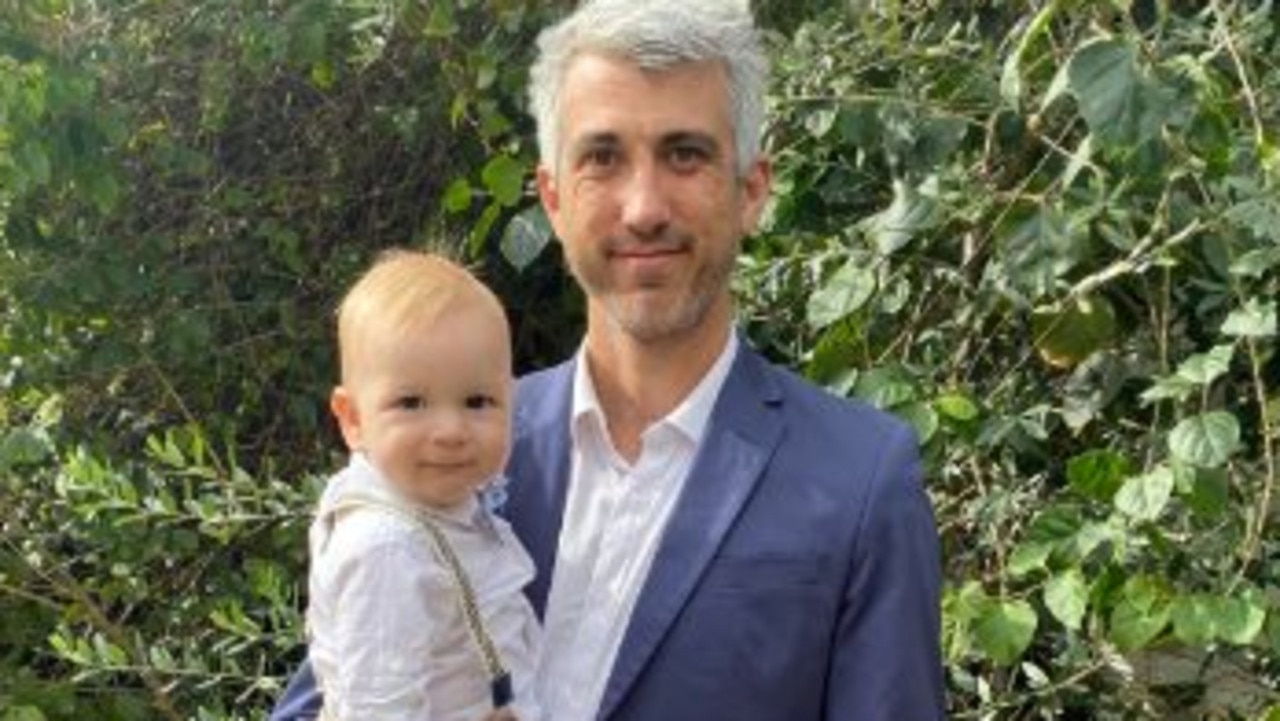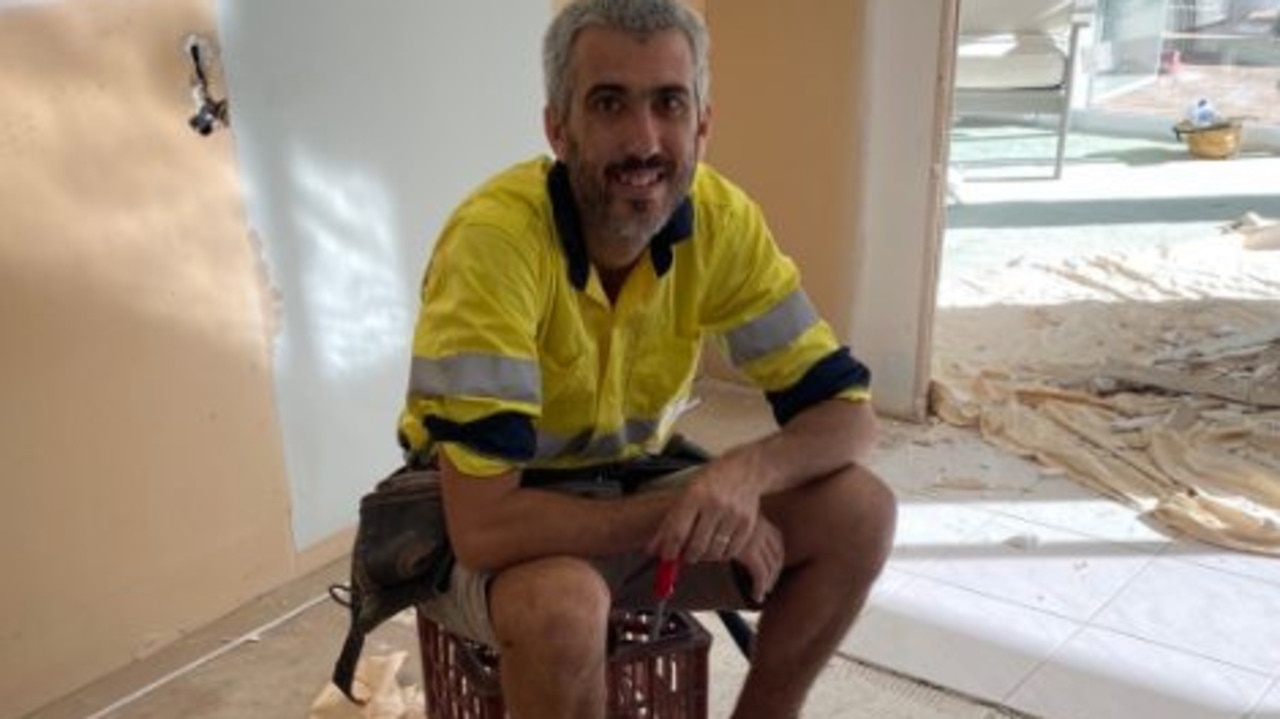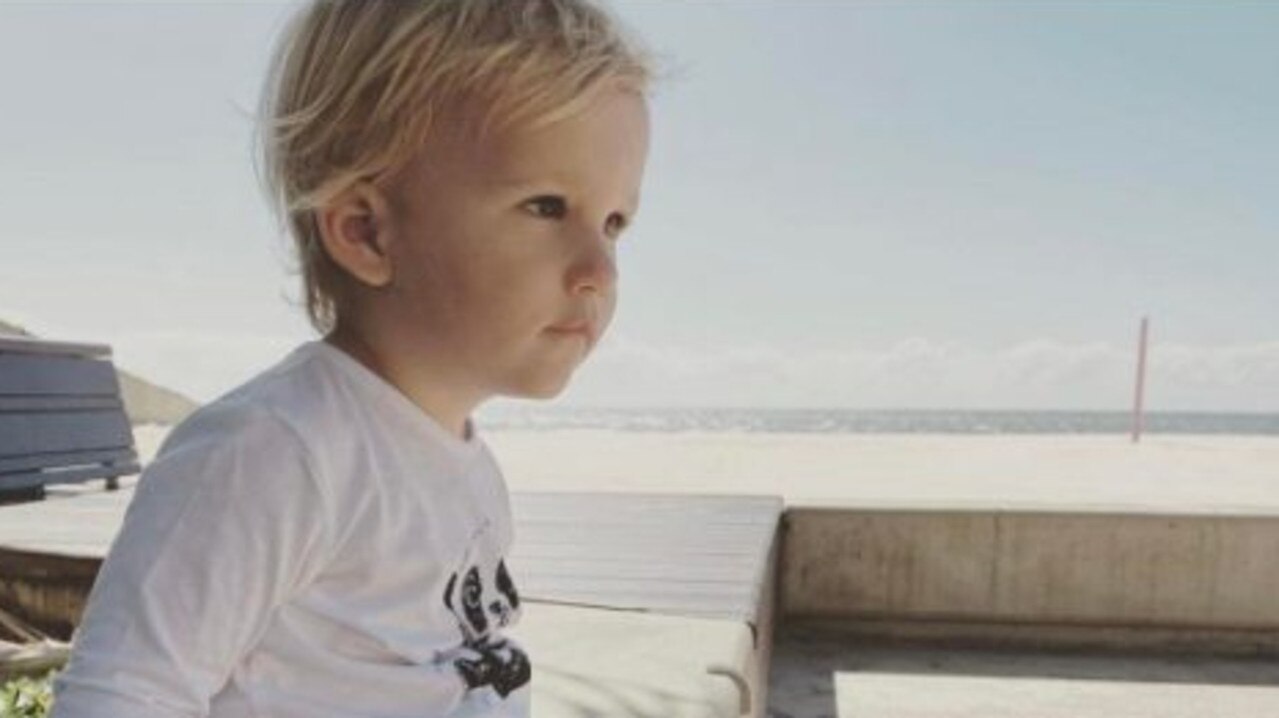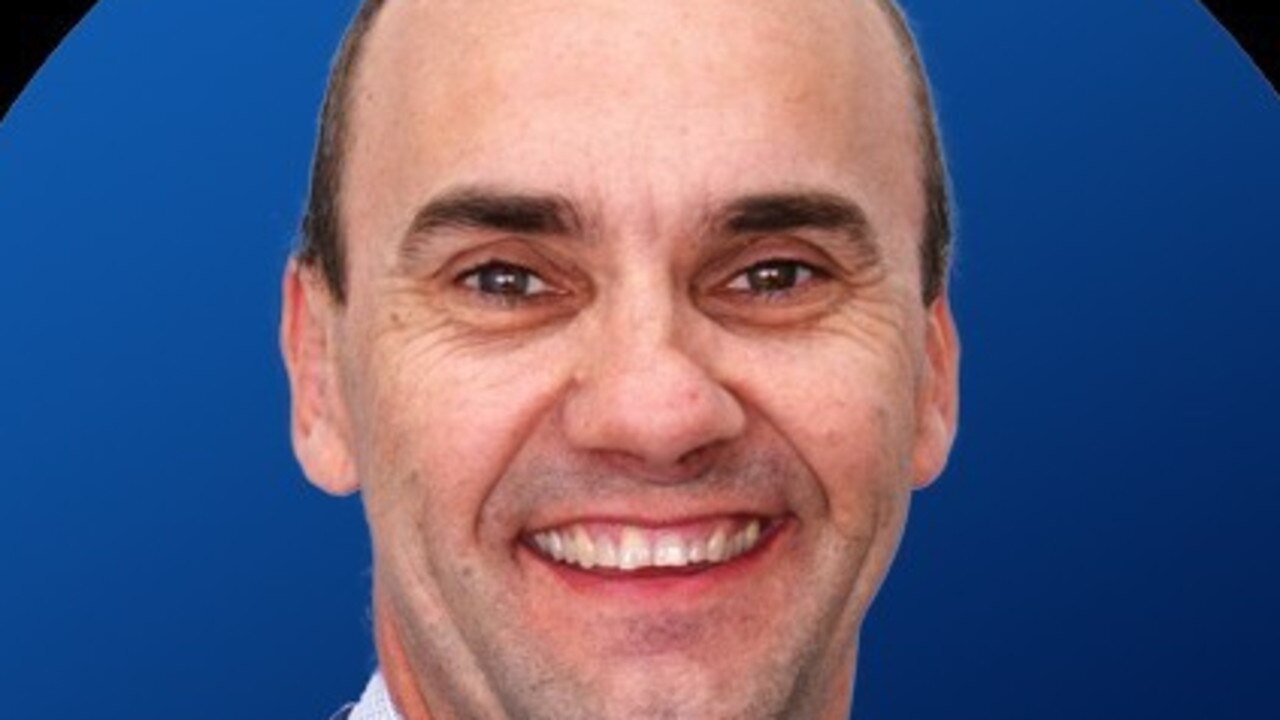Interest rates: Gold Coast family’s mortgage payments to double to $1200 a week
A Gold Coast dad is facing taking a second job as his family’s mortgage repayments are set to double each week.
Jason Bosworth has been forced to take on a second job as he faces the “stressful” reality of his family’s mortgage rolling off an ultra-low fixed rate, which will see their repayments double to $1200 a week.
The dad-of-two purchased the family home with his wife on the Gold Coast back in 2021, with their interest rate fixed at just 2.1 per cent.
Just finding their dream home had been a battle as they searched for around five months while the housing market was going nuts.
“We struggled with buying this property as we weren’t cash buyers. We were waiting on our current home selling and then using that money to obtain that property and that was around the time that Melbourne and Sydney buyers were coming up and doing insane cash offers and going $100,000 above us,” he told news.com.au.
“It was a bit of a challenge back then to even obtain the property that we got – it’s been a ride.”
So the family was thrilled to secure a four-bedroom house for $745,000 where they “gutted” the inside and totally rebuilt.
“It’s more than bricks and mortar,” Mr Bosworth said. “It’s a family home.”

The 35-year-old said it was “stressful” facing the huge increase to mortgage repayments as he is the sole provider while his wife looks after their children, aged one and four – which, he added, is a “much harder” job than “both of mine put together – it just doesn’t pay”.
However, he said while there was a fixation on rising interest rates and mortgage repayments, that wasn’t the only thing battering the family’s finances.
“It’s a flow-on effect as interest rates go up and repayments go up but then you have day-to-day living costs – you have shopping, insurance, registration for vehicles, electricity, rates and water bills,” he said.
“Our repayments are going to double and you have the burden of everything else going up on the back of that. Now we have the home loan covered, how do you cover everything else?
“It does bring stress into the household, which is unfortunate, and it’s difficult to work so much and be so tired from that and stressed from trying to pull everything together.”
Mr Bosworth said the family had already made cuts in anticipation of their mortgage payments going up including cancelling things like the kids’ swimming lessons, TV subscriptions and a casual coffee on the weekend.
Have a similar story? Continue the conversation | sarah.sharples@news.com.au

The family has also started growing produce to try to cut back on food costs too.
“There is nothing further we can really do beside me working a night job or my wife picking up shifts on a night job, which is nothing I want to come close to doing,” he said.
“But we have exhausted our options at the moment. We don’t live an extravagant life, we don’t go to fancy restaurants or theme parks; we live a low-key life and it’s not like we are constantly on holidays.”
According to RBA assessments, later this year mortgage repayments will likely account for a record 9.5 per cent of the total disposable income of all Australian households and people will be feeling the pinch.
On average Australian households with two incomes needed 30.9 per cent of their income to meet monthly mortgage repayments in February and this has soared since May last year when people were paying just 26.4 per cent of their income, research from Moody’s showed.
Unsurprisingly, the worst capital city for affordability is Sydney where a dual-income couple needs 40.7 per cent of their pay to cover a new average-sized mortgage, while in Brisbane the rate is 27.9 per cent.
Mr Bosworth said he wasn’t initially “blindsided” by rising interest rates as he knew they had to go up from the ultra-low rates. But he didn’t expect banks to push them as high as 6 or 7 per cent.
Ten consecutive interest rates hikes have seen the official cash rate rise since May last year from a record low of 0.1 per cent to 3.6 per cent this month.
At the same time, house prices have dropped by 9.1 per cent across the capital cities since February last year, while Westpac has predicted that nationally prices are set to plummet a further 8 per cent in 2023.

Mr Bosworth said his property still held a lot of equity but he had already seen its value plummet in the space of a few months.
“We actually looked to sell probably three or four months ago – it had nothing to do with interest rates going up – we were just a looking at a different lifestyle avenue and it was still a strong market,” he said.
“But property in my area since then has gone down between $100,000 and $200,000. We are still holding a really high price since 2021 but it’s inevitable when interest rates are going up that people don’t want to spend as much as with low rates.
“It’s definitely a concern as … my wife and I are putting everything into the place so we don’t have to sell. But at the end of day, if that’s what we need to do to keep everyone happy and healthy, that is what we need to do.”
There is an estimated 120,000 people who are already facing negative equity – where their mortgage is bigger than the value of their home – and there are expectations more people will be pushed into this territory with the latest rate rise.

If the outlook worsens and property prices were to fall a further 10 per cent, the RBA predicts the number of borrowers in negative equity could jump from 0.5 per cent to 1 per cent.
Recent research revealed the generation most likely to fall into arrears is Gen Z, with more than 22 per cent of them admitting to missing a mortgage repayment within the last 12 months, Compare the Market found.
It also showed Boomers were the least likely to miss a mortgage repayment (7.5 per cent), followed by Gen X (11 per cent) and Millennials (12.3 per cent).
Compare the Market’s general manager of money Stephen Zeller said negative equity is quite concerning for both borrowers and lenders.
“This is a real-life nightmare that some Australian homeowners are living right now,” he said.
“Especially those who might have borrowed close to their maximum amount with a high loan-to-value ratio. Those homeowners tend to have small buffers against market prices. The threat of negative equity is now a very daunting reality to borrowers after 10 consecutive interest rate rises triggered record-breaking price drops.
“For example, let’s say someone buys an apartment for $400,000 and borrows $350,000 from the bank, but an identical apartment the floor below sells for $300,000. Then this could mean the person is in a position of negative equity.”

He added this would make it difficult for people to refinance their loans.
There are 800,000 mortgage holders in Australia who are facing a ‘mortgage cliff’ as they roll off ultra-low fixed rates, according to the RBA, with one-fifth of loans seeing their fixed rates ending this year.
It revealed 15 per cent of all homeowners on variable mortgage rates would see their spare cash flow turn negative – meaning they wouldn’t earn enough money to cover the mortgage, let alone buy food.






